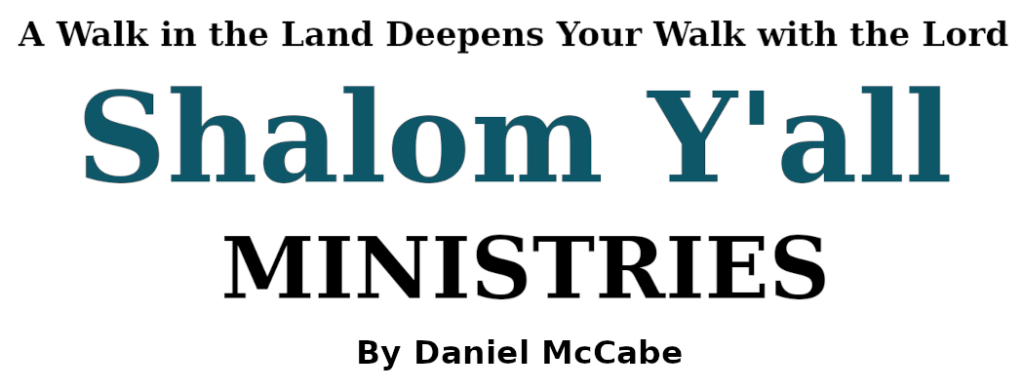On-Site in Israel:
—Another one of my favorite spots to visit in Israel is Jericho. You can’t overstate the importance of Jericho in biblical history for the people of Israel. It was the first site they took during their conquest of Canaan, according to God’s promise. As you know God parted the waters of the Jordan River so His people could cross over, and God took down the defensive walls of Jericho.
—When you visit Jericho today, a keen archaeological eye can look around and realize that what happened there is only explainable by how the Bible states it. You can dig anywhere with your own bare hands in the hill of Jericho, and you will find pottery shards and ancient bricks. When there are any digs—and there aren’t many digs in Jericho these days, although there have been a few major ones—whenever they have dug, it’s been easy to find big jars of scorched barley. That’s because before the conquest, the people of Jericho took all their crops into the city to try to withstand the siege that they expected to happen.
Any military expert would know that you had better take the spoils and the food to feed your own army before moving on to the next target. But, of course, you know that Israel didn’t take all the stuff. They burnt the city. They destroyed it just as God told them to do. Also, when you walk around the collapsed walls of the city, you’ll see that they all fell outwards, and you can see the Canaanitic mud bricks.
What you’ll find in Jericho lines up exactly with how the Bible describes the beginning of the conquest. There’s no other way to explain it by logic. It can’t be explained by what people would logically do in a military campaign or by an earthquake or by anything like that. No other explanation comes close to what you see with your own two eyes, for it lines up with the Bible.
—On my first trip to Jericho, we ate at a restaurant before touring the biblical site. A friendly, gregarious, Palestinian man came and welcomed us, and he gave us some free, cool beverages because it was hot out. He was very friendly and he would joke with us, telling us that he’s the king of Jericho. We found out later that he was the mayor of the modern city of Jericho, so I actually conversed with the mayor of Jericho.
—On my second trip, I was at Jericho with a group from my church, and our senior pastor was with us. We were climbing up a hill, going up into the city. God knocked down the walls of Jericho, destroying them in such a way that as they fell they provided a convenient ramp-like structure for the people of ancient Israel to charge up and into the city.
You can walk up the hill of Jericho today, literally on the same Canaanitic bricks that Joshua and the Israelites climbed up on, though today they are, of course, a lot more brittle. Now around 3,500 years later, we were walking up a hillside, and my pastor’s foot slipped a little bit. He slid down a couple feet, destroying several of the bricks. He felt really bad, but I told him, “Pastor, it’s okay! God wanted these destroyed. You’re carrying on God’s will, right? You’re part of the destruction of Jericho, you know.”
—So that’s how I tried to comfort him.
—Adam Keim

